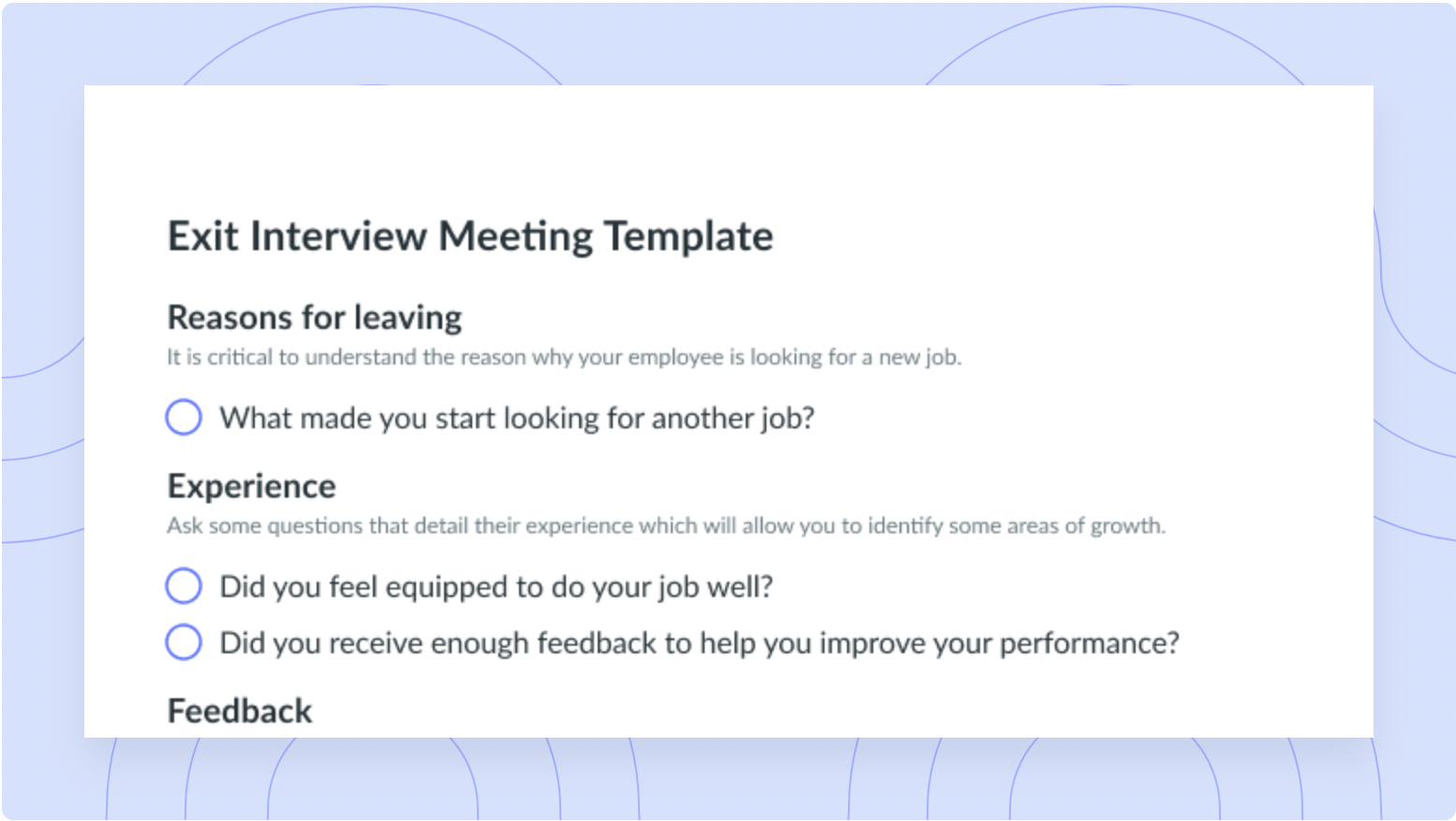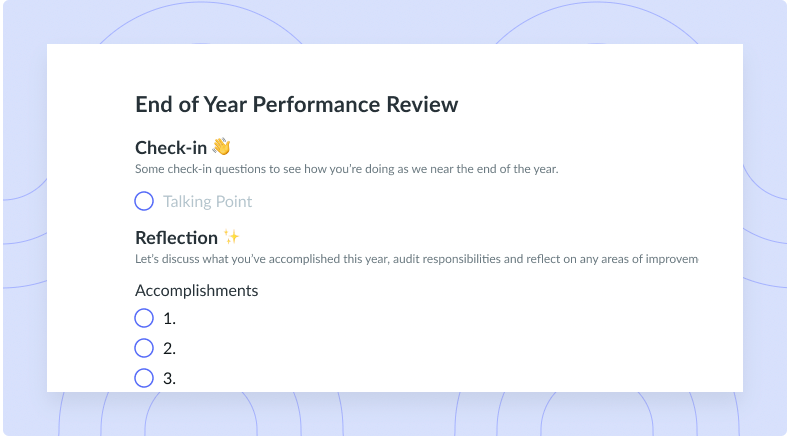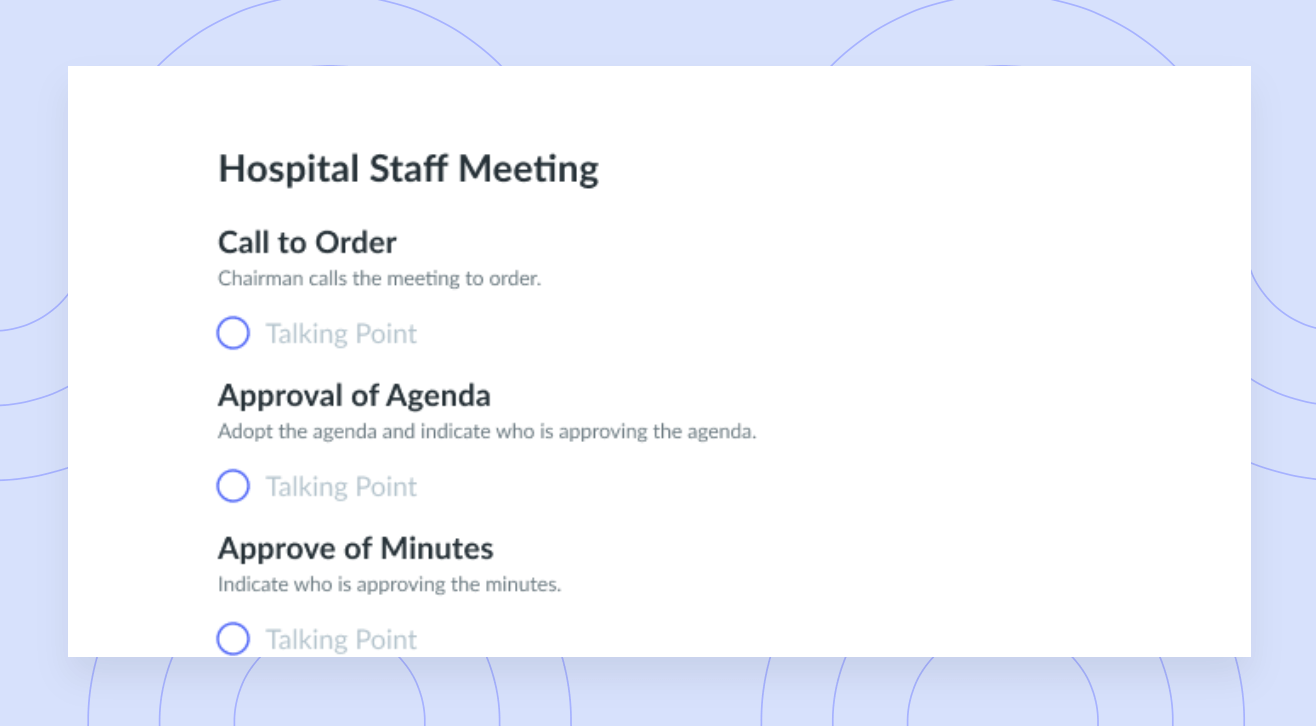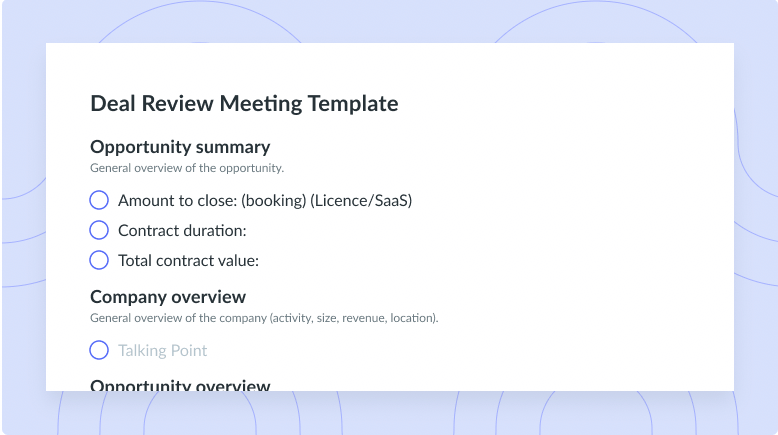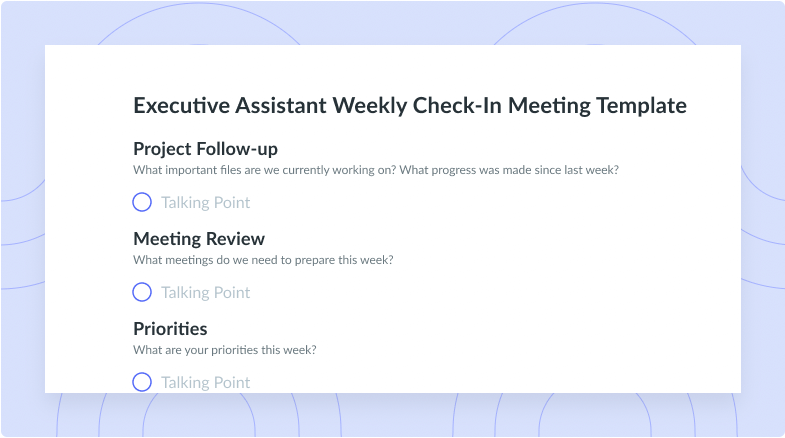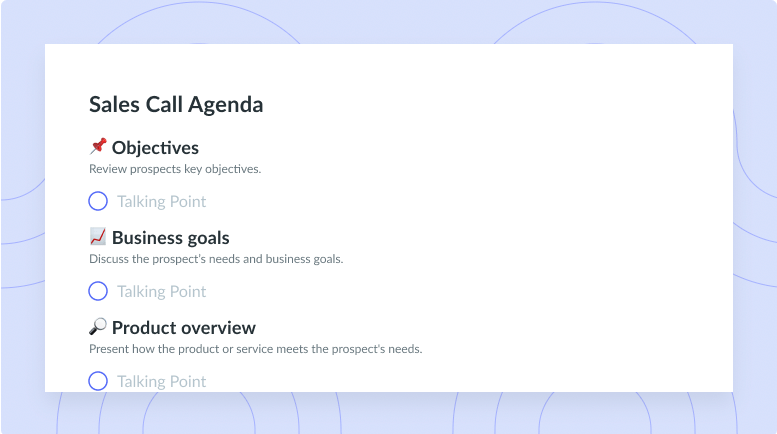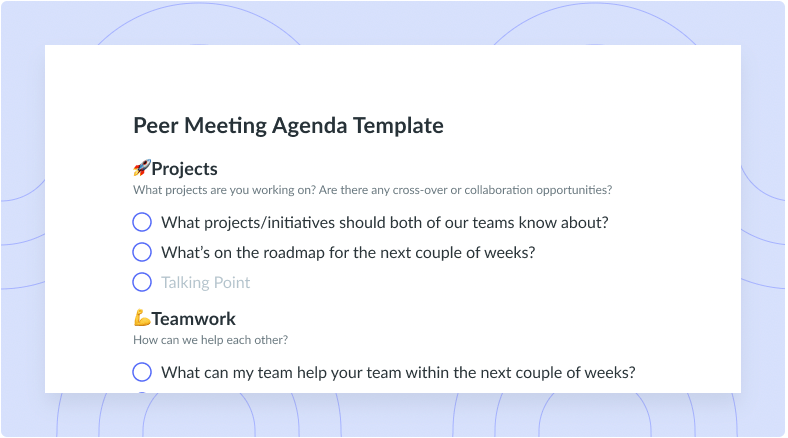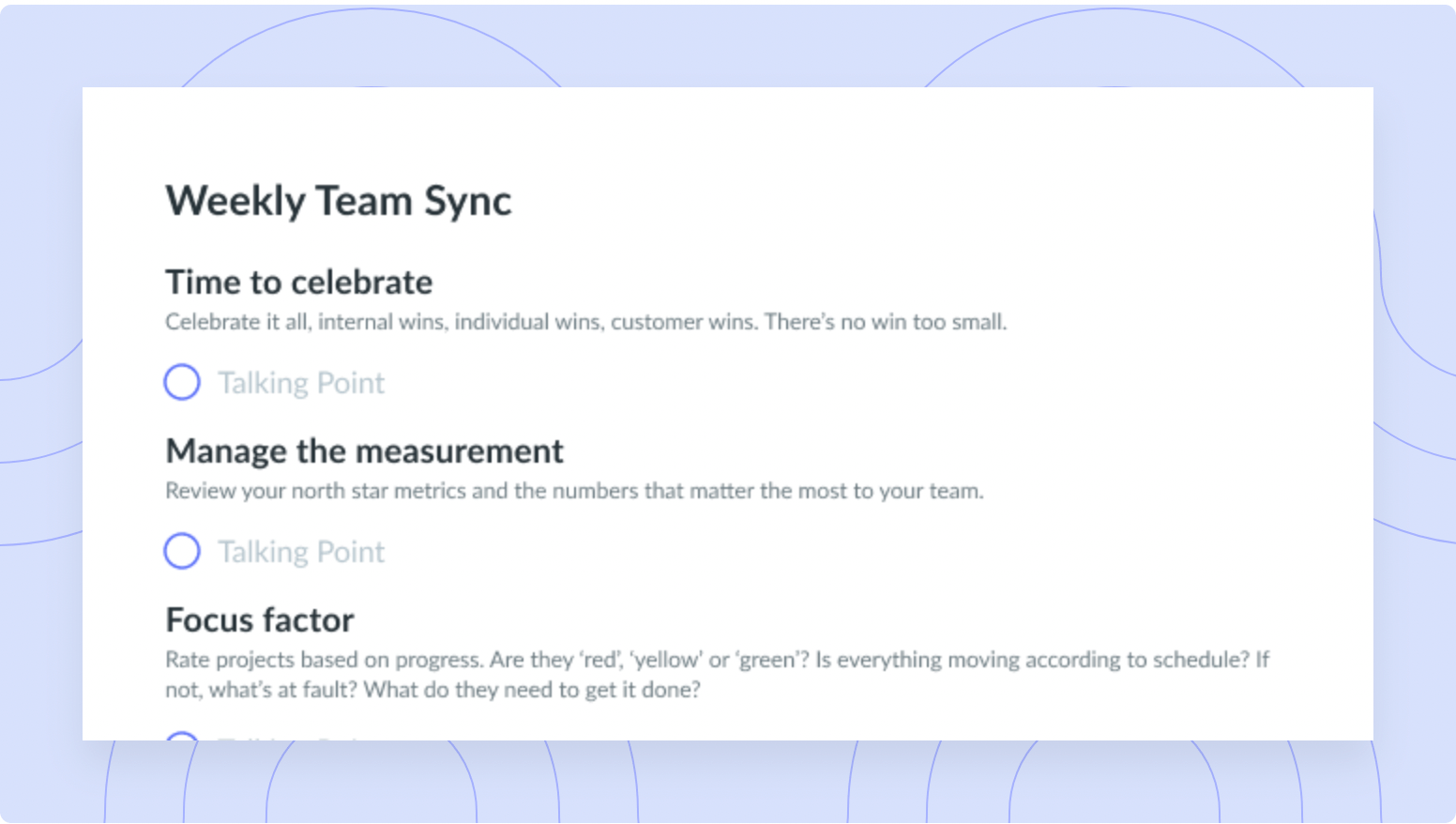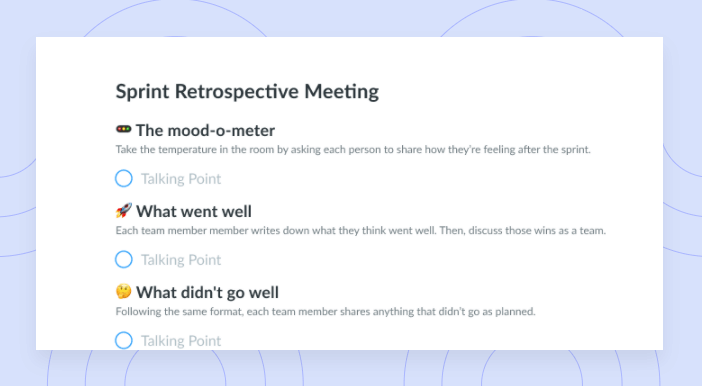Crafting a Healthier Workday: 11 Healthy Work Habits
Try implementing these 11 healthy work habits now and see yourself getting 37 times better within a year! Learn more here.
Every little action you do has a way of impacting your day. Over the long term, this pile of small actions adds up to a potentially large change! The art of continuous improvement focuses on getting 1% better every day so that by the end of one year, you’ll be 37X better than you were at the start of that year! Applying that concept to your job by improving on these healthy work habits can help you get a promotion, align your team on a project, or even achieve a dream career milestone.
11 healthy work habits
- Set boundaries
- Try walking meetings
- Use time management techniques
- Schedule time for deep work
- Move your body
- Celebrate small wins
- Maintain an organized workspace
- Continuously learn new things
- Ask for feedback
- Delegate tasks
- Avoid procrastination
1Set boundaries
Setting boundaries is the practice of communicating your limits and requirements to your colleagues. When you set boundaries with a coworker, you’re informing them of your needs and priorities so you can both work more effectively together. For example, you might set a boundary that you don’t want to receive messages on vacation as that time is needed for relaxation to avoid burnout.
Fellow helps eliminate the last-minute meeting problem with the Meeting Guidelines feature set for Google Calendar users. With this feature, when a meeting is being scheduled to be within the next four hours, the meeting organizer is prompted to give attendees more notice, and schedule it later in the day.
2Try walking meetings
If you’re working in person, walking meetings are a fun way to connect with your colleagues. Getting into a fresh environment can be a great approach for lowering the pressure that comes with stressful meeting topics. Remote workers can also engage in walking meetings by tuning in through headphones while walking on a treadmill or going around the block. This can keep your mind sharp and gives you fitness benefits as an added bonus!
3Use time management techniques
When you think of healthy work habits, time management techniques are likely to be top of mind. Some of the best time management techniques include:
- Pomodoro Technique. In this approach, you’ll break a major task into four groups of sub-tasks. Give yourself 25 minutes to deeply focus on completing those tasks without disruption; then, take a 5-minute break and then do your next 25-minute focus segment. After completing four cycles (approximately 2 hours), take a longer, 30-minute break.
- Time-blocking method. In your calendar, block off several hours each day for specific tasks that you’d like to get completed. During these blocks, ask coworkers not to disturb you unless it’s urgent. Use this focus time for brainstorming, researching, writing, doing administrative work, or completing any other task that takes a lot of attention!
4Schedule time for deep work
Deep work is any type of task that needs a high degree of focus and attention. This can include writing, strategy planning, sorting through data, or researching, for example. You can use the time-blocking time management approach or use other software tools that help you maintain focus during deep work periods.
Forbes explains that,
“The purpose of this time is to complete the biggest and most detailed tasks on your list. If you can be disciplined enough to shut out the world for at least two hours per workday, you will move the needle forward in an exponential way.”
5Move your body
It’s no secret that getting some exercise in your day will provide benefits for your health! Case Western Reserve University recommends that people,
“Take short 1-2 minute stretch breaks every 20-30 minutes. After each hour of work, take a break or change tasks for at least 5 minutes. Always try to get away from your desk during lunch breaks.”
To keep yourself accountable, try pairing up with a coworker who also wants to improve their healthy work habits! You can go for a walk or do a quick stretching session together to debrief your day or unblock each other on any small problems.
6Celebrate small wins
Keep the momentum going by celebrating the small wins. This is especially important if you’re starting a new role or learning a new skill. If you’re too focused on waiting to celebrate until you’ve hit the grand achievement, you’re more likely to lose motivation along the way.
You can make a practice out of regularly tracking your own small successes and use these for leverage in your next promotion. Or, you can make it a team effort to improve morale by setting up a #shout-outs channel on Slack, for example, that highlights the good things your colleagues have done to help you.
7Maintain an organized workspace
Keep yourself organized so you can find your to-do lists and documents faster. Some things you can to do stay organized include:
- Automatically move action items from meetings into to-do lists so you have one go-to place to see your workload.
- Store objectives and key results (OKRs) in a central spot so all of your colleagues can see the team’s goals.
- Build meeting agendas—manually or using artificial intelligence—ahead of each call so you and the other participants are prepared for the conversation topics.
- Sort documentation in a shared folder such as Google Drive or Dropbox so that it’s easily searchable, accessible, and editable by other members of your team.
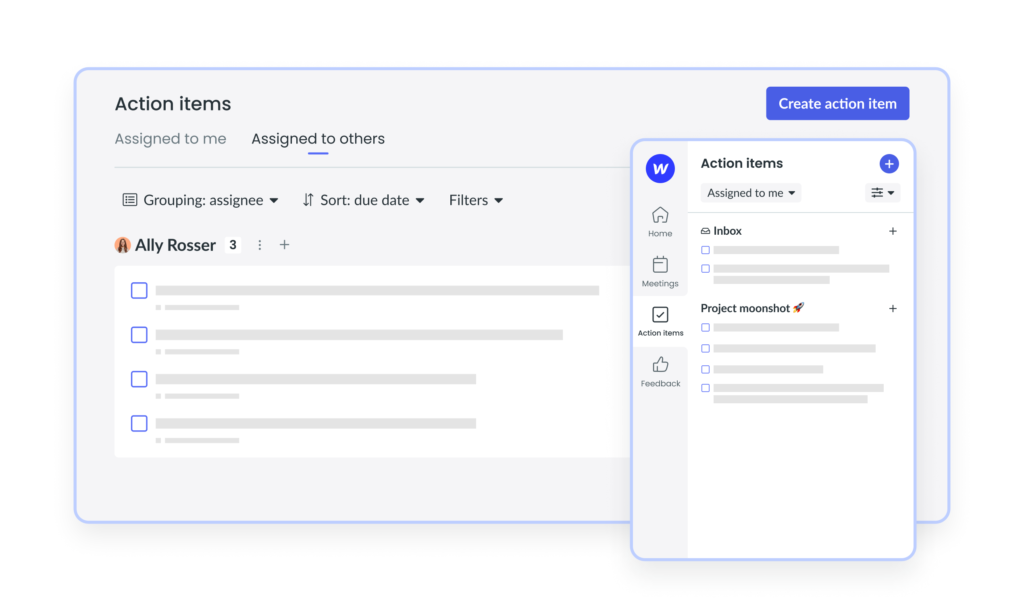
8Continuously learn new things
Continuous learning is an important part of building a growth mindset! Here are a few resources for daily inspiration and lessons:
- Fellow’s Supermanagers podcast for learning how managers tackle everyday issues within their teams
- Skillshare, an online learning community where people can share their expertise with new learners
- Newspapers and industry magazines specifically related to your industry or region
9Ask for feedback
Collecting feedback is essential for your growth and development. You should try to get feedback from managers and coworkers as often as possible. This allows you to see from different perspectives, which may point out areas for improvement that you didn’t know you had.
Fellow helps build a culture of continuous feedback by giving and getting feedback in real-time, effortlessly, promoting a culture of asking for feedback, and getting smart suggestions and useful templates. With Fellow, you can incorporate opportunities for feedback into your team’s day-to-day experience. Fellow also enables you to keep a history of the feedback you exchange to visualize your growth. Plus, Fellow makes 360 feedback simple by enabling users to batch send out their feedback requests with Fellow’s compact 360 feedback tool and gather all the responses in one place!
“One of the best additions to our feedback loop has been the company-wide adoption of Fellow. It provides an amazing platform for constant conversations and direct feedback between managers and direct reports.”
– Justin Schiefner, VP of People Operations & Culture at Arkose Labs.
10Delegate tasks
Delegation of work is one of managers’ biggest struggles, but it’s super important for anyone who wants to level up their skills in the workplace. By delegating work to others who are more skilled or appropriate for handling the task, you open yourself up to new opportunities that can allow you to learn new skills, work towards a career goal, or balance your workload to avoid burnout.
To be effective at delegating tasks, you’ll need to have a lot of trust in the team around you as well as great communication skills to ensure you’re checking in with colleagues about availability and interest before assigning work to them.
11Avoid procrastination
Soldiering is one of the most detrimental procrastination practices in the workplace with most people doing it for an average of 1 hour and 20 minutes each day! It involves any non-work activity during work hours with no intention of harming your employer. Avoiding procrastination helps you switch to healthier work habits so you can stay focused on work-related tasks, get more done, and maybe even get your projects in before their due dates!
How to integrate healthy work habits with Fellow
Fellow is the #1 rated meeting management software on G2 where teams gather to have productive team meetings and meaningful 1:1s, build collaborative meeting agendas, record decisions, and keep each other accountable. Fellow specifically helps organizations with a lot of meetings, projects, or tasks to ensure they’re aligned with team goals and discussion points from past conversations with colleagues.
Here are some of the ways that Fellow helps workers build healthy work habits:
- Eliminate back to back meetings by making them speedy. With the Meeting Guidelines features, meeting organizers are automatically prompted to shorten the meetings they’re creating by 5 – 10 minutes, so attendees can get a break in between meetings.
- Prompt meeting hosts to choose appropriate lengths for meeting times to respect coworkers’ availability.
- Encourage meeting participants to collaborate on agendas in advance so everyone can prepare for the conversation.
- Maintain records of OKRs, progress updates, and project documentation in one place so you can stay organized (this doubles as an easy way to share this information with your colleagues in future calls, too!).
- Keep the momentum going after your meeting is over by assigning, visualizing, and prioritizing all your meeting action items in one place.
Parting advice
Building healthier habits in the workplace won’t happen overnight—it will require a conscious effort every single day. To make it easier to get into the flow of your new and improved habits, consider using software tools like Fellow that will automatically remind you of healthy workplace practices. Fellow will even tell you exactly when you should implement these habits and why; this means you don’t have the added stress of manually managing continuous improvement on your to-do list as Fellow will do that part for you!

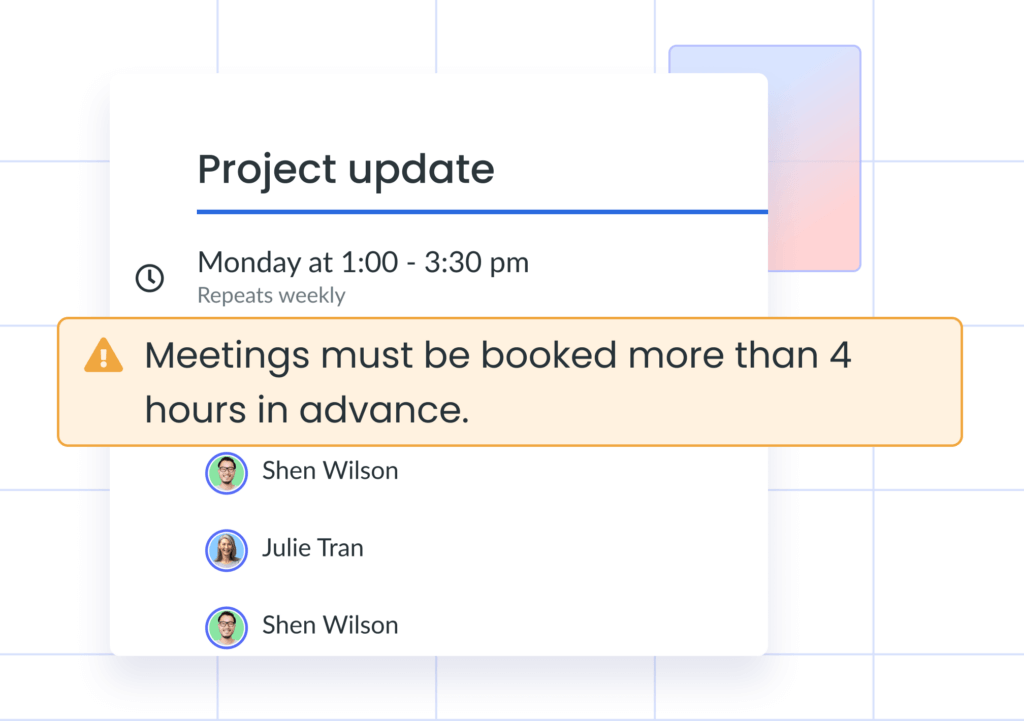



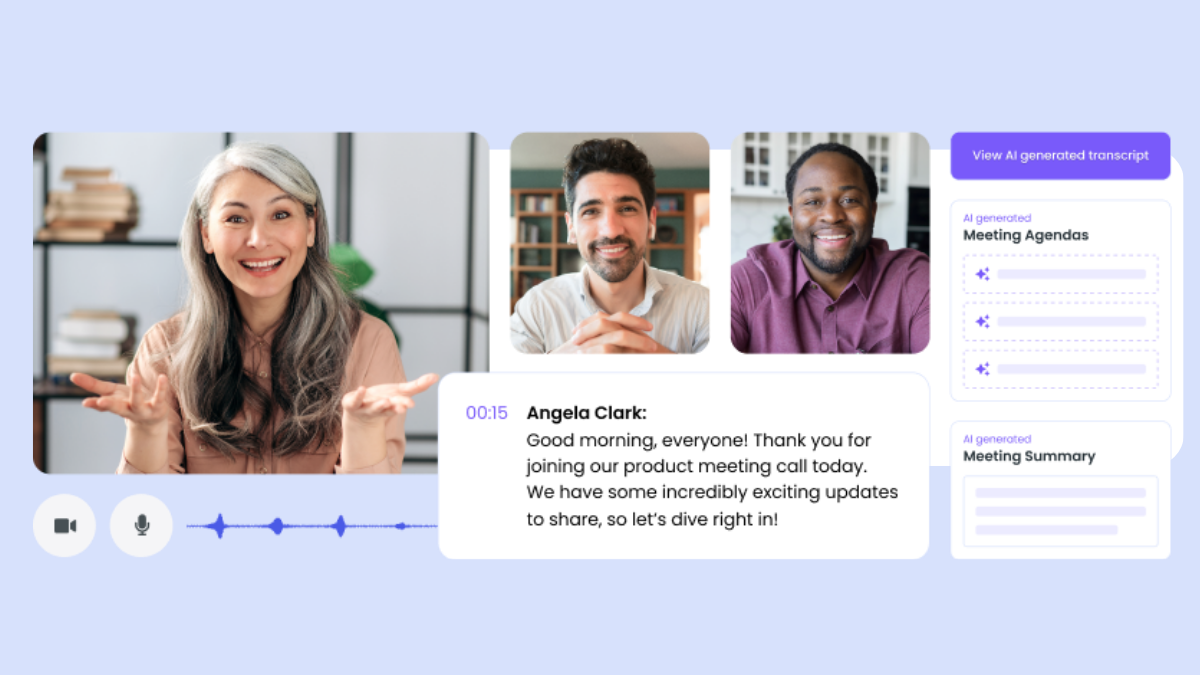


![A Guide to Taking Good Interview Notes [+Free Templates]](https://fellow.app/wp-content/uploads/2023/09/interview-notes.jpg)

![12 Tips to Hold Productive Partner Meetings [+ Free Template]](https://fellow.app/wp-content/uploads/2022/05/Productive-Partner-Meetings-2.jpg)
